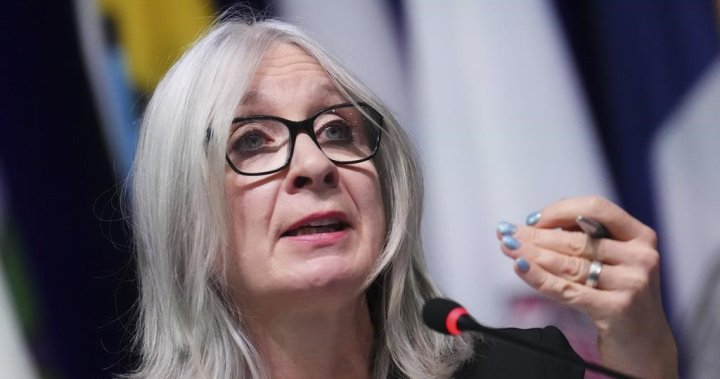Weeks after the father of Jordan River Anderson asked Canadians to “stand up with” his family to demand transparency for Jordan’s Principle, a program named after his late son, Indigenous Services Minister Patty Hajdu says processes are being tightened to return the initiative to its original intent.
Almost $9 billion has been spent on products, services and supports for First Nations children since 2016 and the volume of applications has “grown at an extremely fast pace,” said Hajdu.
In 2021-22, 614,350 requests were approved, compared to nearly three million requests approved in 2023-24 — a 367 per cent increase.
“We remain focused on making sure that First Nations children have equal access to the public services they need,” Hajdu says.
Jordan River Anderson died of multiple disabilities in a Winnipeg hospital in 2005 as the federal and provincial governments fought over who should pay for his care at home. The House of Commons passed Jordan’s Principle to ensure First Nations children would get programs, services and supports when they need them and not be caught in jurisdictional wrangling.
But critics say over the years, the program has been bogged down with funding requests for non-essential things including modelling headshots, gaming consoles, private school tuition and uniforms. Chiefs and councils and Jordan’s Principle office staff in some communities have also been accused of abusing the fund.
In a Jan. 28 social media post viewed more than 93,000 times, Ernest Anderson expressed concern that Jordan’s Principle, named after his late son, is being mismanaged and abused.
Ernest Anderson of Norway House Cree Nation, 800 kms north of Winnipeg, took to social media on Jan. 28 in a video watched 93,000 times, saying what many had been whispering — that the program has become an insult to his son’s legacy.
Get breaking National news
For news impacting Canada and around the world, sign up for breaking news alerts delivered directly to you when they happen.
“We need your support, people across Canada — stand up with us … if your kid was to be used like that, you wouldn’t like it,” Anderson said.
Hajdu says operating changes were underway to make sure requests “align with the long-term sustainability of Jordan’s Principle” before Anderson spoke out.
“We feel that it’s time that we actually have much stronger criteria, more rigor around how we can account for those funds being spent and those supports being provided,” Hajdu told Global News. “But also how we can hold partners accountable like provinces and territories, to not back away from their own responsibilities.”
In some instances, provinces expect Jordan’s Principle to pay for teachers’ assistants, which the feds argue is a provincial responsibility.
Addressing Anderson’s concerns, the minister said Jordan’s legacy remains top of mind.
“What I would say to Mr. Anderson is that, look, I agree that this is worth protecting, which is why the Government of Canada is taking these steps now.”


